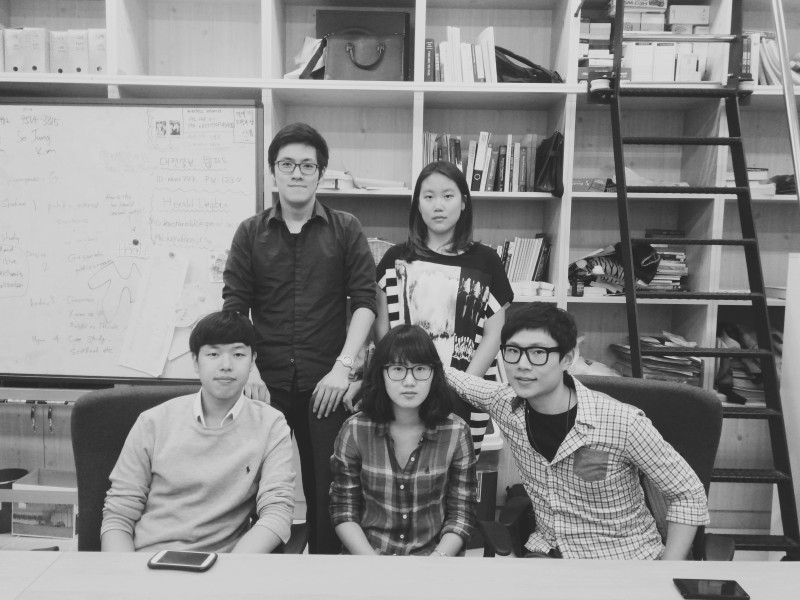This June, six students from KAIST were sent on a global summer internship program at the Massachusetts General Hospital in Boston, Massachusetts, for 8 weeks. They had the opportunity to be fully immersed in the multidisciplinary research-oriented environment and also a chance to participate in various social and cultural activities. The KAIST Herald met with five KAIST students, Chaehyun Lee, Geunseob Oh, Junhwan Bae, Myeong Ji Kim, Shin Hum Cho, who were participants of the program.

What drew you to this program and what were your expectations prior to departure?
Oh: We were based at HST, a part of MIT and Harvard University, and so I expected active interaction with others working/studying at these top-tier universities.
Lee: I knew that this experience would be something I could not obtain anywhere else, and the fact that we were based at Massachusetts General Hospital ensured that we would get to interact with top professors who are pioneers in the respective fields.
Please tell me more about the research one of you conducted while participating in the program.
Cho: My research was on diagnosis of blood-related problems in patients. As the program is a bio-optics program, we tried to overcome the limitations of the conventional bio-devices that are already on the market. In my research, laser was shone through a blood sample, which allowed for the observation of speckling. From this speckling, relevant data, such as blood coagulation, could be extracted. The conventional devices for the detection of abnormal blood coagulation is very mechanical and also costly, but our project aimed to simplify the process using a non-evasive method. The 7 weeks of research period was intensive because we all aimed to obtain quantifiable data in a short amount of time, but it was fruitful. We had a poster fair marking the end of the projects and I could see that everyone in the program worked very hard.
Bae: We were all assigned to different laboratories and upon arrival, I realized that they had assigned some suggest work according to my background. They had some things in mind for me, and I was able to work together with them to agree on the direction of my research. The difficulty level was suitable as well, sometimes challenging and independent.
What were some main differences between the research experience in the program and in KAIST (if you have completed any)?
Cho: Firstly, I think it was really multi-disciplinary. We usually hear a lot about how we should conduct interdisciplinary research but it is usually just a vague concept you do not usually execute in Korea. In contrast, I was really surprised on how nice the people were at MGH, as we could borrow any equipment and ask for advices from people outside our lab freely.
Lee: In Korea, you usually stick to a lab in/relevant to your majoring course. However, at MGH, there were scientists from so many different fields working in the same lab. One may be a Chemist, a biophysics expert or a mechanic. All would work together towards the same goal. Despite the differences in background, they worked really well together and I could see that the same problem could be approached from many additional perspectives.
What were some activities apart from research work you participated in?
Oh: I observed that students and researchers in America spend their time more efficiently on their work, thus spending lesser time. They work during the weekdays and spend their weekends freely. It was the same for our lab and thus I travelled all around Boston, to Washington D.C. and New York, which are cities near Boston. Also, Boston is a beautiful city and I was able to participate in lots of sports activities such as sailing and tennis. There was also a beautiful river we hung out at.
What do you feel you have gained after participating in this program?
Bae: For me, an electrical engineer, it was awkward at first to work on chemical synthesis at the labs. However, I really felt that it was a fruitful experience after all the work was over. If I did not get this experience now in my undergraduate years, I presume I would have continued to work on breadboards and circuits only, but through this experience, I was able to change my long term research goals toward the biomedical electronics.
Is there anything you would like to say to students who are interested in joining this program?
Kim: I think hearing about or imagining the research atmosphere is completely different from experiencing it first-hand. My idea of Boston changed completely after my experience. I was able to gain quality insights on research atmosphere and lab discussions. I really recommend you to participate in the seminars or lab experiences at our school and no matter what your major is, I recommend you apply to this program. Look out for more opportunities and think about your future early!

